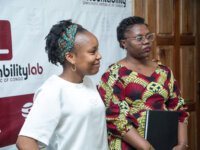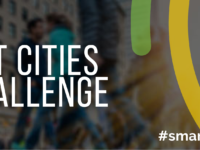LAB Justice is the first executive education program, tailor-made for the Justice sector. With a customized learning journey, it was designed to help people working for Justice bodies address the challenges faced to deliver more efficient and people-centred services. Focused on three main areas – strategic management, digital transition and leadership in a context of change –, it aims to ensure the necessary skills to implement reform measures, namely those under the Recovery and Resilience…
Innovation Tag: Challenges and Awards
The Future Tech Challenge (FTC) is a pilot initiative led by DPER to connect and collaborate across the wider ecosystem, and engage in transformative innovation by experimenting with, and applying new technology to address pressing public sector problems and opportunities that deliver improved services to the public. Drive innovation using emerging technology, enhance collaboration, meet National strategic priorities, generate knowledge & learnings and develop prototyped solutions.
In an increasingly digital world, Participa.gov represents our vision for civic participation in political decision-making processes. Participa.gov is the Portuguese Public Administration's centralized, cross-cutting platform for facilitating participatory processes at all levels of government. It employs cutting-edge technology to ensure that citizens can actively participate in policy decision-making via secure and transparent mechanisms that foster trust.
The Accountability Incubator is a creative peer learning program for young civic activists and change-makers who want to fight corruption and build accountability. It was developed to provide long-term support, networks and skills to people who are often overlooked by or left out of traditional civil society programs. It is innovative in that it uses creative tools, a long-term approach and the very latest thinking to shape governance globally.
There are plenty of innovative initiatives that never manage to reach the public sector, generating inequalities in access and quality in the provision of solutions. GovtechLab Madrid is the first open innovation Lab located inside of the Community of Madrid. The focus of the Lab is on reducing the barriers and accompanying both the supply and demand sides in finding solutions and opportunities to implement them.
The IDT is a multi-stakeholder dialogue methodology whose objective is to generate spaces for collaborative co-creation to design public policy proposals for a locally development challenge.
The IDT Yumbo worked on a challenge prioritized by citizens. The causes were identified and solutions were proposed, creating a policy prototype. Through advocacy platforms, the prototype was presented to the local and regional government to incorporate the proposal as part of the Municipal policymaking.
The Busan Port Authority (BPA) has completed the two innovative projects utilizing the features of sea port, one is ‘piezoelectric power generation system’ and the other is ‘construction wastes recycling project’. Both the piezoelectric power and the recycled construction wastes have been assessed not only to contribute to the improvement of environment, but also, to reduce construction cost. The BPA plans to share the gained outcomes of those projects with other domestic and foreign…
We detect wicked problems and turn them into new spaces for innovation. It is a platform for all Estonian ministries, the public and the private sector, experts and entrepreneurs to join forces and build the future that we deserve. We are untapping new markets with a powerful but lean public-private collaboration.
The number of traffic accidents resulting in human casualties have not shown any significant decrease in Estonia over the past ten years. While velocity is one of the factors to significantly increase the severity of the consequences, user-centric approaches also lead to the realisation that in Estonia speeding is a widely accepted social norm. An innovative approach was developed in order to test the effect of losing time, instead of money, as a potential measure to affect drivers’ behaviour.
The Smart Cities Challenge is a competition open to local governments across Canada. Launched in 2017 as the federal government’s first prize-based funding program, it invites communities to solve problems and improve quality of life for residents by leveraging connected technologies and data. The Challenge incentivizes communities to approach problem-solving in creative ways by working with residents, building partnerships, experimenting and taking risks.





